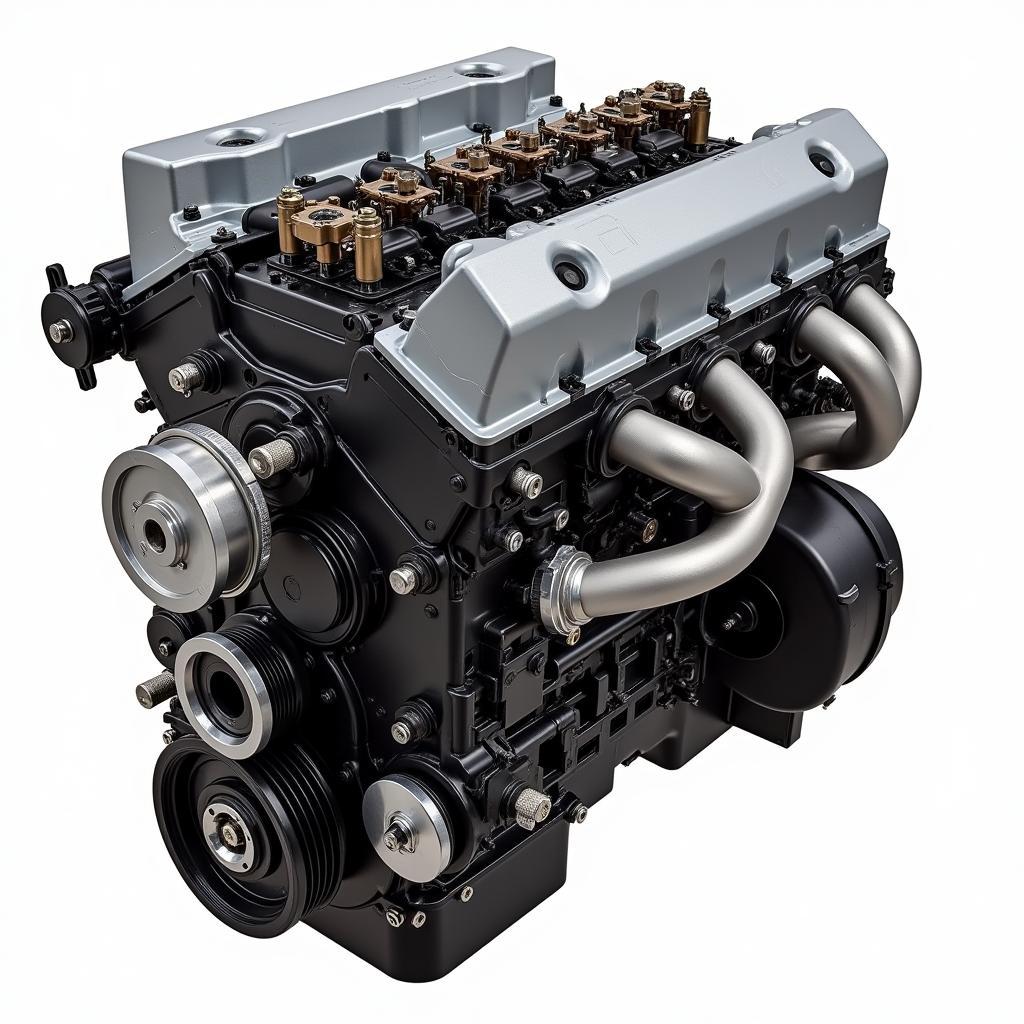Keeping your car in top condition requires regular maintenance, which not only ensures a smooth driving experience but also extends its lifespan and minimizes costly repairs down the line. Whether you’re a car owner or a mechanic, understanding the recommended maintenance schedule for your vehicle is essential. This guide provides a comprehensive overview of essential maintenance tasks, their importance, and how to ensure your car stays in optimal condition.
Regular Maintenance Schedule: A Vital Part of Car Ownership
The frequency of recommended maintenance for your car is usually outlined in your owner’s manual, but there are some common tasks that should be done on a regular basis. This schedule serves as a roadmap for ensuring your car’s health and avoiding potential issues.
1. Oil Changes: The Cornerstone of Engine Health
Oil changes are one of the most crucial maintenance tasks, as the engine oil lubricates moving parts, reducing friction and wear. You should get an oil change every 3,000 to 5,000 miles, or as recommended by your vehicle’s manufacturer.
Tip: “Regular oil changes are vital for engine longevity,” says John Smith, a certified auto mechanic with over 20 years of experience. “It’s like giving your engine a vital vitamin boost.”
2. Air Filter: Breathing Life into Your Engine
The air filter prevents dirt and debris from entering the engine, ensuring optimal airflow. A dirty air filter can restrict airflow, reducing engine performance and fuel efficiency. It’s recommended to replace the air filter every 12,000 to 15,000 miles.
3. Brake Pads and Rotors: Keeping You Safe on the Road
Brake pads wear down over time, and replacing them when necessary is critical for safe braking. The condition of your brake rotors should also be checked during each brake inspection. You should get your brakes inspected at least once a year, and replace the brake pads every 20,000 to 30,000 miles.
4. Tire Pressure and Rotation: A Smooth and Efficient Ride
Proper tire pressure is essential for optimal fuel efficiency, handling, and safety. You should check your tire pressure at least once a month, and rotate your tires every 5,000 to 7,500 miles.
5. Battery: Powering Your Car’s Journey
The car battery powers your vehicle’s electrical system, and its lifespan can be affected by various factors. Have your battery checked at least once a year and replaced if needed.
6. Fluids: Maintaining the Car’s Internal System
Your car uses various fluids to function correctly, including coolant, brake fluid, and transmission fluid. These fluids need to be checked and topped off regularly.
7. Spark Plugs: The Igniter of Combustion
Spark plugs are responsible for igniting the fuel-air mixture in the engine. They should be replaced every 30,000 to 100,000 miles, depending on the type of plugs used.
8. Timing Belt: Synchronizing Your Engine’s Rhythm
The timing belt synchronizes the movement of the camshaft and crankshaft. If the timing belt breaks, it can cause serious engine damage. It’s recommended to replace the timing belt every 60,000 to 100,000 miles.
Beyond the Basics: Comprehensive Maintenance Services
While the above list covers essential maintenance tasks, there are additional services that contribute to your car’s overall health and performance. These include:
1. Engine Tune-Up: Optimizing Your Engine’s Power
An engine tune-up involves adjusting the ignition timing, cleaning the fuel injectors, and replacing worn spark plugs, resulting in smoother engine operation and improved fuel economy.
2. Suspension and Steering: Maintaining Smooth Handling
Inspecting and replacing worn suspension and steering components is crucial for a safe and enjoyable driving experience. This includes components like shock absorbers, ball joints, and tie rod ends.
3. Cooling System: Keeping Your Engine Cool Under Pressure
A well-maintained cooling system prevents overheating, protecting your engine from damage. This involves checking the coolant level, hoses, and thermostat.
4. Transmission: Ensuring Smooth Gear Changes
Regular transmission fluid changes and inspections help ensure smooth gear changes and prevent premature wear.
Tips for Prolonging Your Car’s Lifespan
Here are some practical tips to help you extend the life of your car and minimize maintenance costs:
- Follow the manufacturer’s recommended maintenance schedule.
- Use high-quality fluids and parts.
- Address any warning lights or unusual noises promptly.
- Drive smoothly and avoid harsh acceleration and braking.
- Park in a shaded area to reduce heat exposure.
- Have your car inspected regularly by a qualified mechanic.
Frequently Asked Questions (FAQ)
Q: How often should I get my car inspected?
A: It’s generally recommended to have your car inspected at least once a year or every 12,000 miles, whichever comes first.
Q: How do I know if my car needs a new battery?
A: Signs of a failing battery include slow cranking, dimming headlights, and clicking noises when trying to start the engine.
Q: What are the signs of a worn timing belt?
A: A worn timing belt can make a squealing or tapping noise. It’s important to address this issue promptly to avoid engine damage.
Q: What is the difference between a full synthetic oil change and a conventional oil change?
A: Full synthetic oil is designed to last longer and provide better protection for your engine. It’s generally recommended for newer cars with high-performance engines.
Q: Can I do car maintenance myself?
A: Some basic maintenance tasks, like checking fluids and tire pressure, can be done by car owners. However, more complex tasks, like oil changes and brake repairs, are best left to qualified mechanics.
Contact Us:
For any questions or concerns about your car’s maintenance, feel free to contact us.
Phone: +1 (641) 206-8880
Office: 500 N St Mary’s St, San Antonio, TX 78205, United States
By following the recommended maintenance schedule and practicing good car care habits, you can keep your vehicle running smoothly for years to come. Remember, preventive maintenance is the key to a happy and reliable car ownership experience.





Leave a Reply